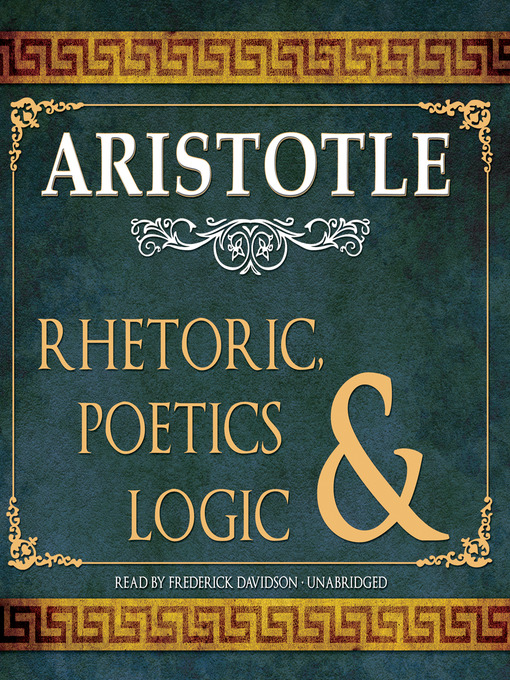Aristotle's influence on modern culture has become more and more important in recent years. His contribution to the sum of all wisdom dominates all our philosophy and even provides direction for much of our science. And all effective debaters, whether they know it or not, employ Aristotle's three basic principles of effective argument, which form the spine of rhetoric: "ethos," the impact of the speaker's character upon the audience; "pathos," the arousing of the emotions; and "logos," the advancement of pertinent arguments. In his discussion, Aristotle observes several aspects of epic poetry, lyric poetry, and comedy. He maintains that poetry has greater philosophical value because it deals with universals, while history states particular facts.
- Available now
- New E-book Additions
- New kids and teen additions
- Most popular
- Best of the Library Writers Project
- Black Pacific Northwest Collection
- Manga from VIZ Media
- Ukrainian e-books
- See all
- New Audiobook Additions
- Most popular
- Available now
- New kids and teen additions
- LGBTQ Young Adult Audiobooks
- Family-Friendly Audiobooks 🎧
- Always Available Audiobooks
- Audiobooks Read by Celebrities
- See all

